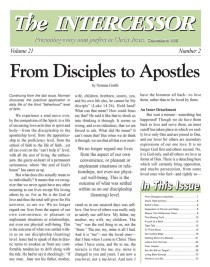
Separation of Church and State
Many Americans believe that our founding fathers wanted to keep all religion out of government. However, the concept of separation of church and state, a phrase not stated in the Constitution, is misunderstood from a historical perspective and misused by secular forces as a way to quash Christian expression in our society.
The early, pre-Revolution America was a profoundly Christian America. While there were many different sects, all were distinctly Christian, and in fact, outwardly evangelical. People of other faiths, such as Judaism and Islam, lived in Colonial America, but were not found in large numbers and were not persecuted but more just left alone.
The Christians of 18th century America agreed on and promoted the idea of a personal relationship with Christ, contrary to the institutional liturgy of the European church from which they had fled. The states were formed by pioneers with specific doctrinal distinctions, such as the Quakers in Pennsylvania and the Puritans in Massachusetts. The early universities which now make up the Ivy League were essentially Christian and founded by different denominations. In fact, it was the evangelical zeal of these early Americans that served as a main driving force behind the American Revolution.
Our heritage is replete with writings and sermons passionately delivered in the state halls of early America by Christian evangelicals calling their countrymen to rally against the tyranny of England. Alexis de Toqueville, a Frenchman who wrote insightfully about America, described the American Revolution as a religious event.
Thomas Jefferson is often referenced as the early proponent of keeping Christianity out of state affairs. But this is actually not true. Jefferson supported days of rest, prayer and fasting, and even attended church services in government buildings.
What Jefferson did do, however, was develop the idea that government should not establish a religion. The early churches were so intertwined with the states that the people wanted pastors salaries paid out of state coffers. While actually not against Christian expression in government, Jefferson did recognize the potential myriad problems of state governments actively and financially supporting different churches. This was the genesis of the Constitutional concept against establishment of religion but was not intended to totally remove any reference to Christianity from public and government affairs.
So what happened? The Supreme Court headed by Chief Justice Earl Warren in the early 1960s banned public prayer and reading of Bible verses in school based on its interpretation of the First Amendment. As a result, public display of the Ten Commandments in state courthouses, nativity scenes at public buildings, and even the Pledge of Allegiance are called into question by our courts.
We expect cultural traditions to change with time. However, we should not accept the pernicious habit of our courts to remove any acknowledgment of Americas Christian roots from our government and its agencies. Fewer principles of our America are as fundamental to our American heritage as are the basic, nondenominational precepts of Christianity. None are more important to saving Americas moral culture, our freedom, and our way of life.





